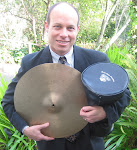 |
| The author, September, 1964 |
Historian Jon Grinspan traces a short history of parenting from the late 19th century to today in the May 31, 2014 New York Times article The Wild Children of Yesteryear (link here). Boys were expected to spend "their childhoods in a rowdy outdoor subculture" to foster a young republican outlook: self-reliant, democratic, striving and entrepreneurial. Late 19th and early 20th century changes, especially the progressive movement, urged laws to protect children. Additionally demographic changes (less children) created more worried parents. The movement to becoming helicopter parents, Grinspan argues, began not in the 1970s but before the McKinley administration.
Parents have becoming more involved in education as well, and what parents think is good for educating kids may not be. Sociologists Keith Robinson and Angel Harris argue that parental involvement in children's education is unnecessary. In the April 12, 2014 NYT article Parental Involvement is Overrated (link here)and in their book, The Broken Compass: Parental Involvement with Children's Education, Robinson and Harris argue that "most forms of parental involvement yielded no benefit to children's test scores or grades, regardless of racial or ethnic background or socioeconomic standing." Occasionally parental involvement did matter, but the research showed it depended on which behavior and which ethnic group. For example, regularly reading to elementary school children benefited white and Hispanic children but not black children. The researchers argue that policy makers need to take into account the factors of behavior, academic outcome, grade level, racial and ethnic background, and socioeconomic standing when advocating for the very few parental involvements that help kids. More simply, though, "parents should set the stage and then leave it." This adage may apply to kids' play lives as well.



